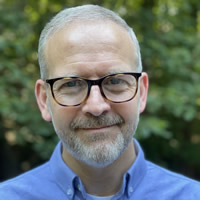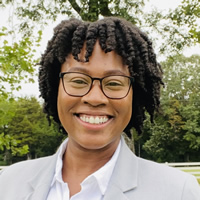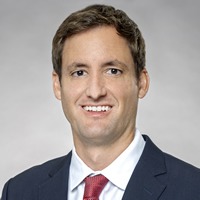IRP Seminars will be in-person meetings this semester, unless otherwise noted. Connection information for virtual seminars will be sent in advance to the IRP Seminar email list.
January 23, 2025
 Racial Dynamics of Federal Property Buyouts in Flood-Prone Areas
Racial Dynamics of Federal Property Buyouts in Flood-Prone Areas
Christopher Timmins, Professor, Real Estate and Urban Land Economics, University of Wisconsin–Madison
12:15-1:30 pm, 8417 William H. Sewell Social Sciences Building
Climate projections forecast significant increases in flood risks for communities of color. The use of managed retreats, or “buyouts,” of flood-prone properties as an adaptation response is also likely to grow. This presentation investigates the role of race and ethnicity in buyout bargaining outcomes. The research combines nationwide administrative data on federal property acquisitions and housing sales transactions with a database tracking individual movements over time, then estimates the discount in buyout payments relative to a property’s fair market value, how the payment received affects where households relocate, and whether these impacts differ by race. Results highlight how government policy, intended to address increasing climate impacts, may exacerbate the burden of climate change on vulnerable communities.
Recording of this seminar is available on the IRP YouTube Channel.
January 30, 2025
 Improving the Effectiveness of Two-Generation Home Visit Programs for Families Living in Poverty: The Recipe 4 Success Preventive Intervention
Improving the Effectiveness of Two-Generation Home Visit Programs for Families Living in Poverty: The Recipe 4 Success Preventive Intervention
Robert Nix, Audrey Rothermel Bascom Professor, Human Development & Family Studies, University of Wisconsin–Madison
12:15–1:30pm, 8417 William H. Sewell Social Sciences Building
One important way to reduce class- and race-based disparities in children’s developmental outcomes is to ensure that social and educational services for families living in poverty are as effective as possible. The Recipe 4 Success preventive intervention was designed to enhance the value of participating in Early Head Start home visits. The intervention targeted those parent and child factors most likely to be undermined by living in poverty and most predictive of long-tern health and well-being, including parents’ sensitive scaffolding of learning and young children’s self-regulation and healthy eating habits. This presentation will review the community-engaged participatory collaboration involved in the creation of Recipe 4 Success, the two community-based randomized controlled clinical trials assessing its immediate and sustained effects, and current efforts to disseminate the intervention.
Recording of this seminar is available on the IRP YouTube Channel.
February 6, 2025
 Vulnerable Asian Americans: From Intra-Asian Diversity to Narrative Plentitude
Vulnerable Asian Americans: From Intra-Asian Diversity to Narrative Plentitude
Van Tran, Professor, Sociology and International Migration Studies, City University of New York, Graduate Center
12:15-1:30 pm, 8417 William H. Sewell Social Sciences Building
Co-sponsored with the Center for Demography and Ecology
As a high-achieving minority group, Asians—on average—have surpassed Whites in education, income, and wealth. This “controlling” narrative, however, is incomplete because it renders intra-Asian disparities invisible. One consequence of intra-Asian diversity is the divergent destinies of hyper-selected Asians and vulnerable Asians. This talk shifts the academic focus away from narratives of Asian American “success” to vulnerable Asian Americans. This least advantaged segment of the Asian population includes refugees and the elderly population. Future data collection efforts should also address the inherent bias toward the inclusion of the largest Asian groups at the exclusion of more vulnerable Asian groups in prior research. Investing in a robust data infrastructure, especially national surveys on health, aging, and retirement, will contribute to the narrative plentitude in future research and the cultural representations of U.S. Asians.
Recording of this seminar is available on the IRP YouTube Channel.
February 13, 2025
 The Effect of Allotment on Native American Households During the Assimilation Era
The Effect of Allotment on Native American Households During the Assimilation Era
Dustin Frye, Assistant Professor, Agricultural & Applied Economics, University of Wisconsin–Madison
12:15–1:30pm, 8417 William H. Sewell Social Sciences Building
Co-sponsored with American Indian & Indigenous Studies
In the early twentieth century, the U.S. government sought to culturally assimilate the hundreds of thousands of Native Americans living on reservations. One key mechanism was the Dawes Act (1887), which broke up tribally held lands and allotted them to individual Native households. This presentation examines how these land allotments shaped Native households’ economic, educational, and social outcomes. It draws on newly digitized records from the Bureau of Indian Affairs, land allotment records from the Bureau of Land Management, and the 1940 U.S. Census to assess the impact of allotment at both the individual and community levels. Special attention is given to the role of local Indian Agents, whose movements across reservations reveal how their decisions influenced the policy’s implementation and its long-term consequences for Native communities.
Recording of this seminar is available on the IRP YouTube Channel.
February 20, 2025
 The Prevalence and Mental Health Impacts of Militarized Policing in American Cities
The Prevalence and Mental Health Impacts of Militarized Policing in American Cities
Gerard Torrats-Espinosa, Assistant Professor, Sociology, Columbia University
12:15–1:30pm, 8417 William H. Sewell Social Sciences Building
The killing of Breonna Taylor in 2020 brought national attention to no-knock search warrants, a policing practice that allows law enforcement officers to enter premises unannounced. Despite being among the most dangerous and aggressive policing tactics, no-knock search warrants and forceful residential police raids remain under-researched. Building on the literature on the social costs of aggressive policing, this talk will present findings from a multi-city study analyzing all forceful residential search warrants executed over a decade by three large US urban police departments. Discussion will include evidence of racial and ethnic gaps in neighborhood-level exposure to forceful residential search warrants, then focus on the community-level mental health effects of such policing practice. Findings contribute to a growing body of literature highlighting the unintended and adverse consequences of aggressive policing in communities of color and among disadvantaged populations.
March 6, 2025
 Parenting in Precarity: Experiences of Black Mothers Impacted by Child Protective Services
Parenting in Precarity: Experiences of Black Mothers Impacted by Child Protective Services
Darcey Merritt, Professor, Crown Family School of Social Work, Policy, and Practice, University of Chicago
12:15–1:30pm, 8417 William H. Sewell Social Sciences Building
Black families are overrepresented in Child Protection Services and are more likely to have insufficient housing, income, generational wealth, and concrete support, resulting in an increased likelihood of CPS exposure. Collapsing notions of good parenting with CPS decision-making about poverty-related neglect further codifies structurally racist discourses about Black motherhood into harmful policies, negatively impacts mothers’ self-perception and self-esteem, and diminishes parental autonomy. This presentation will examine ways in which systemic racism and the lack of concrete support constrain parenting decisions among CPS-impacted Black mothers in the United States. Identified themes included system oversight and lack of resources constraining parenting choices (inaccessible child care, insufficient employment, CPS unresponsive or uninclined to understand the context of poverty and impacts on parenting choices), being fearful of CPS and traumatized by CPS exposure, and exercising hypervigilance in documenting parenting behaviors and choices in fear of system oversight. What is termed neglectful parenting by CPS are really choices being made due to poverty, lack of access to concrete supports, and community-level risk factors beyond their control.
Monday, March 10, 2025 – Household Finance Virtual Seminar
 Human Services Deserts? Nonprofit Human Services Access in Possible Desert Counties
Human Services Deserts? Nonprofit Human Services Access in Possible Desert Counties
Shoshana Shapiro, National Poverty Fellow, Institute for Research on Poverty, University of Wisconsin–Madison, in residence in the Office of Community Services (OCS) in the Administration for Children and Families (ACF)
1:15 pm – Link to join via Zoom
Co-sponsored by the Institute for Research on Poverty
This talk will present novel data analysis on human services availability in possible human services desert counties, and discuss a new typology of human services deserts. It will also cover themes from analysis of the open-ended interview responses, which share information about the experiences of providers in these counties.
Wednesday, March 12, 2025 – Lunch & Learn Seminar – Canceled
 Social Capital: The Link Between State Political Culture and Civic and Political Participation
Social Capital: The Link Between State Political Culture and Civic and Political Participation
Austin Conner, National Poverty Fellow, Institute for Research on Poverty, University of Wisconsin–Madison, in residence at the Office of the Assistant Secretary for Planning and Evaluation (ASPE)
March 13, 2025
 Sheepskin Effects in Higher Education
Sheepskin Effects in Higher Education
Ben Ost, Associate Professor, Department of Economics, University of Illinois at Chicago
12:15–1:30pm, 8417 William H. Sewell Social Sciences Building
College enrollment is a critical pathway for economic mobility and despite steeply increasing tuition, it remains a strong economic investment on average. Though the average benefits are known to be large, there is surprisingly little causal evidence on whether college dropouts benefit from having attended some college or if the benefits of college are driven entirely by graduates. This presentation will examine if the earnings benefits are mostly driven by graduates, which would suggest that college enrollment is a risky investment given the 63% graduation rate and the even lower graduation rate among disadvantaged groups. These distinctions are critical for much of higher education and K–12 policy.
March 20, 2025
 Premigration Gender Inequality and Postmigration Perinatal Health among Immigrants and Refugees to Canada
Premigration Gender Inequality and Postmigration Perinatal Health among Immigrants and Refugees to Canada
Zoua Vang, Meta Schroeder Beckner Outreach Professor, Civil Society & Community Studies, University of Wisconsin–Madison
12:15–1:30pm, 8417 William H. Sewell Social Sciences Building
Premigration risks are the conditions in the country of origin that can affect immigrant women’s health prior to moving to another country. Gender specific premigration risks include sexual violence, lack of political representation, economic precarity due to limited educational and employment opportunities, limited reproductive rights, and a greater burden of infectious diseases owing to poor healthcare access. For refugee women, the interception phase (e.g., internment in refugee camps) can expose women to sexual violence, infectious and sexually transmitted diseases, unintended pregnancies, PTSD, and malnutrition. This presentation will address the implications of premigration risks, namely gender inequality, on the perinatal health outcomes of immigrant and refugee women who resettle in Canada.
March 27, 2025
NO SEMINAR: SPRING BREAK
April 3, 2025
 Government Litigation Risk and the Decline in Low-Income Mortgage Lending
Government Litigation Risk and the Decline in Low-Income Mortgage Lending
Erik Mayer, Assistant Professor, Department of Finance, Investment and Banking
University of Wisconsin–Madison
12:15–1:30pm, 8417 William H. Sewell Social Sciences Building
In the wake of the 2008 Financial Crisis, the Department of Justice brought lawsuits against many large mortgage lenders for alleged fraud in the Federal Housing Administration (FHA) mortgage insurance program. The lawsuits led to over $5 billion in settlements and caused targeted banks and their peers to precipitously exit the FHA mortgage market. The FHA program has historically been a major source of credit for first-time and lower-income homebuyers. This presentation examines the effect of the DOJ lawsuits on FHA mortgage lending and lower-income households’ access to credit.
Thursday, April 10, 2025
NO SEMINAR: PAA Conference
April 17, 2025
 Welfare Capitalism on the Cheap? Employee Hardship Funds, Worker Attachment, and Union Avoidance
Welfare Capitalism on the Cheap? Employee Hardship Funds, Worker Attachment, and Union Avoidance
John Ahlquist, Associate Dean and Professor, Director, Pacific Leadership Fellows Program, School of Global Policy and Strategy, University of California, San Diego
12:15–1:30pm, 8417 William H. Sewell Social Sciences Building
Hundreds of U.S. employers have created “employee hardship funds” (EHFs). EHFs pool money donations from a firm’s workers in order to offer cash grants to the firm’s employees in unforeseen emergencies. As such, these programs represent a post-industrial mash-up of worker-run mutual aid funds (precursors to labor unions) and employer “welfare capitalism” (designed in part to prevent unionization). Do these programs have any impact on workers’ financial well-being or attachment to their jobs? Can they be deployed for union avoidance? Ahlquist discusses first-of-its-kind data designed to answer these questions, shedding light on the evolving moral economy between workers and employers in today’s low-wage labor market.
April 24, 2025
 The New Housing Crisis: Gentrification and Residential Instability in the San Francisco Bay Area after the Great Recession
The New Housing Crisis: Gentrification and Residential Instability in the San Francisco Bay Area after the Great Recession
Jackelyn Hwang, Associate Professor, Department of Sociology, Stanford University
12:30-1:45 pm, 8417 William H. Sewell Social Sciences Building
The Great Recession was marked by the collapse of the housing market and foreclosure crisis, but many places now face a new housing crisis marked by the lack of affordable housing. In 2019, nearly 50% of renters reported paying more than 30% of their income toward rent, compared to 37% in 2000. Drawing from large-scale consumer credit data of over 240,000 Bay Area residents and in-depth semi-structured interviews with 80 low-income renters from the City of Oakland, this talk will present research assessing the relationship between gentrification and residential mobility and alternative forms of housing instability amidst a changing housing landscape. Findings have theoretical implications for scholarship on gentrification and displacement and policy implications for addressing housing needs for low-income renters and homelessness prevention efforts.
May 1, 2025
 2025 Lampman Memorial Lecture
2025 Lampman Memorial Lecture
To Lift Everyone: The Changing Cost of Poverty Reduction in the United States
Matthew Desmond, Maurice P. During Professor of Sociology, Princeton University and Principal Investigator of The Eviction Lab
4:00-5:00 pm, Overture Room, Gordon Dining and Event Center
Reception will follow lecture.